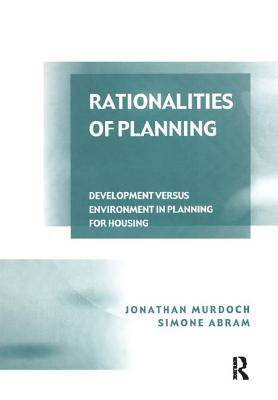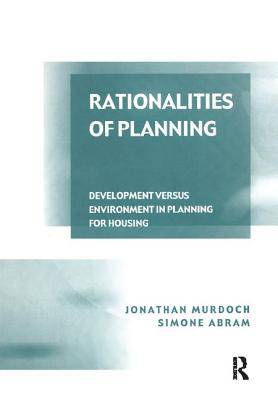
- Afhalen na 1 uur in een winkel met voorraad
- Gratis thuislevering in België vanaf € 30
- Ruim aanbod met 7 miljoen producten
- Afhalen na 1 uur in een winkel met voorraad
- Gratis thuislevering in België vanaf € 30
- Ruim aanbod met 7 miljoen producten
Zoeken
Rationalities of Planning
Development Versus Environment in Planning for Housing
Jonathan Murdoch, Simone Abram
Paperback | Engels
€ 62,45
+ 124 punten
Uitvoering
Omschrijving
What are the key rationalities that underpin planning policy discourses and how do they 'frame' seemingly irreconcilable conflicts around development and environmental protection? Providing a thorough assessment of these important questions, this stimulating book reviews planning policy in the UK and the rationality of 'sustainable development'. Supported by a wealth of empirical material collected over the past ten years, the study examines the national, regional and local tiers of planning for housing. It analyzes whether the rationality of planning for 'sustainable development' allows a new spatial sensibility to inform planning policy, and whether it still responds to the social demands that were previously incorporated within the developmental method. The overriding concern, which the authors respond to and expand upon, is whether planning for sustainable development can provide a satisfactory basis upon which to re-establish contemporary planning.
Specificaties
Betrokkenen
- Auteur(s):
- Uitgeverij:
Inhoud
- Aantal bladzijden:
- 174
- Taal:
- Engels
Eigenschappen
- Productcode (EAN):
- 9781138272316
- Verschijningsdatum:
- 28/06/2017
- Uitvoering:
- Paperback
- Formaat:
- Trade paperback (VS)
- Afmetingen:
- 152 mm x 229 mm
- Gewicht:
- 317 g

Alleen bij Standaard Boekhandel
+ 124 punten op je klantenkaart van Standaard Boekhandel
Beoordelingen
We publiceren alleen reviews die voldoen aan de voorwaarden voor reviews. Bekijk onze voorwaarden voor reviews.











